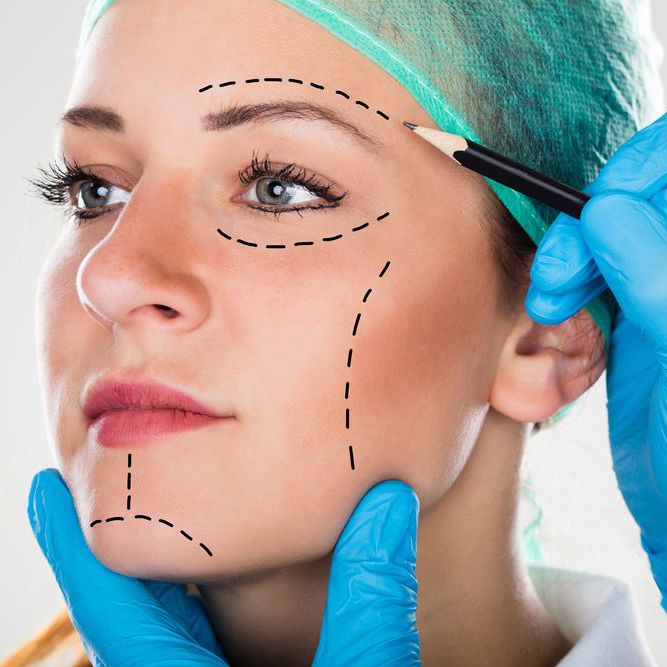Premier Plastic Surgery Seattle: Expert Look After Your Aesthetic Makeover
Premier Plastic Surgery Seattle: Expert Look After Your Aesthetic Makeover
Blog Article
A Deep Study the Common Validation for Seeking Aesthetic Surgery: Unboxing the Wish for Adjustment and Self-Improvement

Social Stress and Appeal Specifications
Often, social stress and dominating appeal criteria play a significant function in people' choices to pursue cosmetic surgical procedure (liposuction bellevue). In modern society, graph greatly affects personal perceptions of good looks, often continued by media, star recommendations, and social platforms. These channels frequently advertise idealized variations of beauty, leading people to internalize these requirements and examine their self-respect against them

Additionally, these pressures are not limited to certain demographics; they impact individuals throughout different ages, sexes, and histories, highlighting the pervasive nature of beauty criteria. This extensive influence increases vital concerns about the values of plastic surgery and the effects of societal criteria on individual selections. Ultimately, understanding these stress is vital for promoting a much more inclusive definition of charm that commemorates diversity.
Individual Experiences and Transformative Stories
Numerous people who undergo cosmetic surgery report transformative experiences that expand beyond mere physical adjustments. For lots of, these procedures function as a stimulant for improved self-worth and a renewed sense of identification. Clients often describe feeling freed from long-lasting insecurities, causing boosted confidence in both expert and individual realms.
Take, for instance, the story of a young lady that underwent boob job after years of feeling awkward concerning her appearance. Post-surgery, she reported not just a newfound convenience in her body yet likewise a considerable improvement in her social life and job opportunities. Likewise, a middle-aged male who selected to undertake a facelift shared how the procedure rejuvenated his overview on life, triggering him to go after brand-new passions and relationships.

Emotional Factors Behind Plastic Surgery
Many emotional factors contribute to the decision to undertake cosmetic surgical treatment, showing deeper psychological and psychological health considerations. Individuals commonly pursue surgical improvements as a way to resolve sensations of inadequacy, low self-confidence, or dissatisfaction with their appearance. These psychological motivations can be rooted in past experiences, social comparisons, or individual aspirations.
Body picture distortion is a widespread concern, where individuals view their physical attributes in an exaggeratedly negative light. This distortion can result in obsessive thoughts regarding viewed flaws, triggering the wish for surgical alteration as an option. Furthermore, the quest of perfection and societal stress can amplify these sensations, pressing people toward cosmetic treatments in hopes of achieving an idyllic variation of themselves.
In addition, the principle of self-improvement plays a critical duty. Several people watch cosmetic surgery as a YOURURL.com path to improve their quality of life, thinking that boosted appearance will lead to enhanced social approval, better partnerships, or enhanced job opportunities. Ultimately, the emotional elements behind plastic surgery highlight the complex interaction in between private self-perception and external influences, revealing the multifaceted nature of the desire for change.
The Duty of Media in Perception
In today's society, media plays an essential function fit assumptions of charm and self-regard. Through various systems-- social media sites, television, and advertising-- idealized standards of appeal are often disseminated, influencing individual desires and self-image. These portrayals frequently stress narrow meanings of good looks, predominantly including vibrant, slim, and electronically boosted pictures, which can create unrealistic standards for individuals aiming to adjust.
The effect of media is further exacerbated by the pervasive nature of social networks, where customers are pestered with curated content that highlights aesthetic enhancements, recommending a society of contrast. This constant direct exposure can bring about feelings of inadequacy among customers, prompting them to think about cosmetic surgical procedure as a way of attaining the viewed suitable. Study shows that individuals who engage with these media representations are more probable to share dissatisfaction with their appearance, enhancing the wish for medical treatments.
Moreover, the normalization of plastic surgery in media narratives can desensitize audiences, framing such procedures as commonplace and also necessary for social acceptance. Hence, the media's portrayal of beauty not only affects private selections pertaining to cosmetic surgical treatment however likewise contributes to a more comprehensive social dialogue concerning self-worth and identity.
Honest Considerations and Future Fads
Amidst the expanding appeal of plastic surgery, honest considerations surrounding the technique have become increasingly noticeable. As the demand for procedures increases, so as well do issues concerning informed consent, the emotional inspirations of clients, and the capacity for exploitation by cosmetic surgeons. It is vital for professionals to guarantee that clients fully recognize the benefits and dangers, along with the ramifications of their choices, to promote a responsible strategy to aesthetic improvements.
Additionally, the influence of social media and appeal standards increases concerns regarding the effect on mental health and wellness, particularly amongst susceptible populations. As recognition of body image concerns expands, ethical technique necessitates a mindful evaluation of the motivations behind surgical interventions. Specialists have to stabilize individual needs with honest obligation, guaranteeing that decisions are rooted in authentic self-improvement as opposed to social pressures.
Aiming to the future, patterns might move towards non-invasive and highly advanced procedures, emphasizing person safety and contentment. Furthermore, the incorporation of mental analyses might help attend to underlying concerns prior to medical treatment. The plastic surgery area must adapt to these ethical challenges while advertising a society of transparency and self-acceptance, ultimately focusing on the well-being of people.
Conclusion
In conclusion, the quest of cosmetic surgery is influenced by a confluence of social stress, personal experiences, and mental factors. As ethical factors to consider advance, future trends in cosmetic surgical procedure will you can check here likely mirror ongoing social dialogues surrounding self-improvement and individual identity.
Regularly, social stress and dominating appeal criteria play a substantial role in people' decisions to pursue cosmetic surgical procedure. liposuction bellevue. Ultimately, these transformative tales highlight the multifaceted factors people look for cosmetic surgical procedure, intertwining individual growth with the quest of aesthetic improvement
Many people view cosmetic surgery as a path to enhance their quality of life, believing see this that boosted look will lead to raised social acceptance, better partnerships, or enhanced occupation opportunities. Eventually, the psychological factors behind cosmetic surgery highlight the complicated interaction between specific self-perception and exterior influences, revealing the diverse nature of the wish for change.
As moral considerations develop, future patterns in cosmetic surgical treatment will likely mirror recurring societal dialogues bordering self-improvement and individual identity. liposuction bellevue.
Report this page